It's a field that needs more workers — and these Fredericton whiz kids have a head start
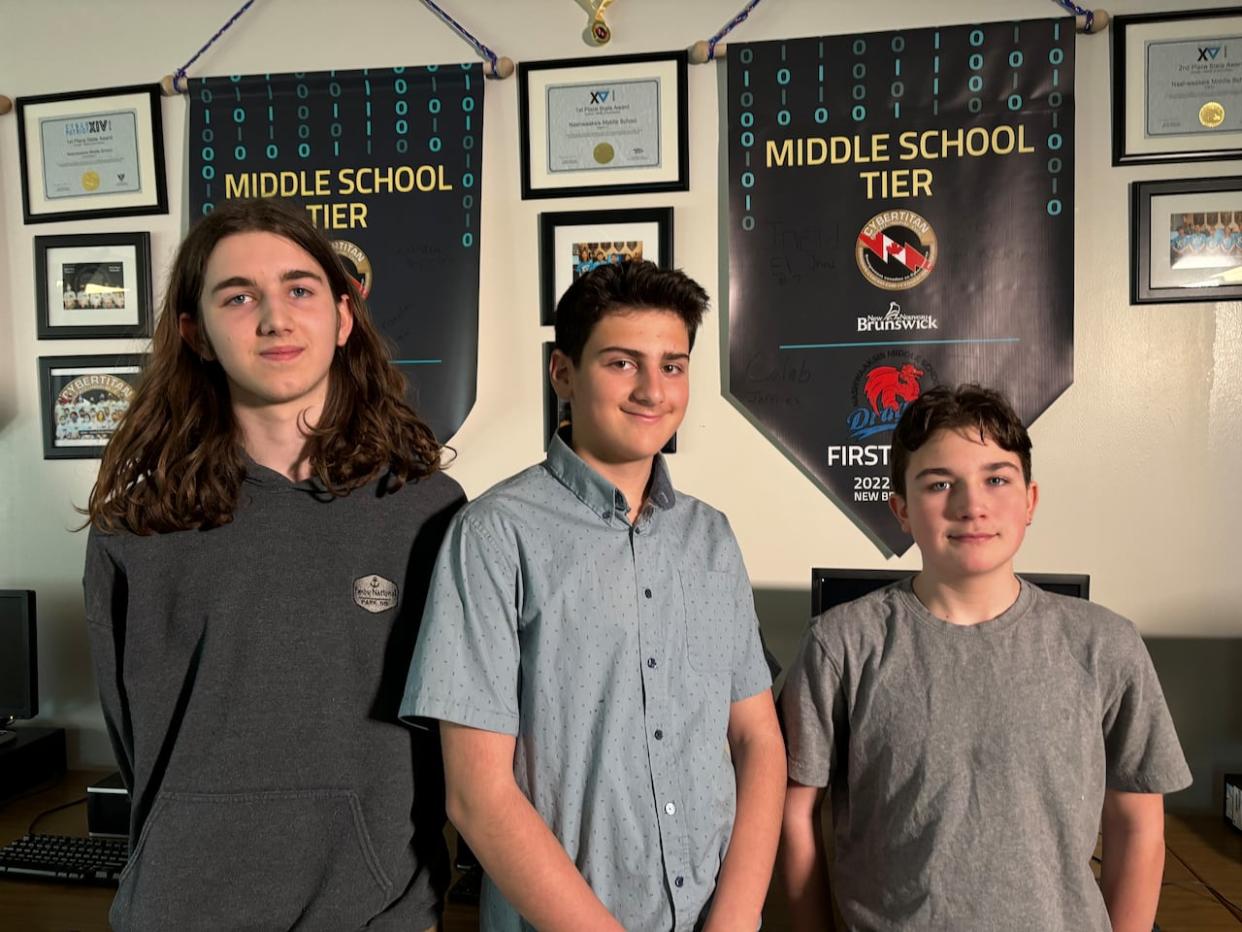
A cyber attack on the City of Saint John in November 2020 may have been just a headline for many, but for a group of students at Nashwaaksis Middle School, defending such an attack is the stuff career ambitions are made of.
As organizations increasingly rely on technology, the ransomware attack that took down the city's website and affected its emergency dispatch system forced the city to rebuild its network and launch a new website.
The attack cost Saint John millions and was eventually traced back to a breach through a phishing email.
Those types of security breaches are what two teams of clever Grade 6-8 students are training to detect during their lunchtime and after school practices.
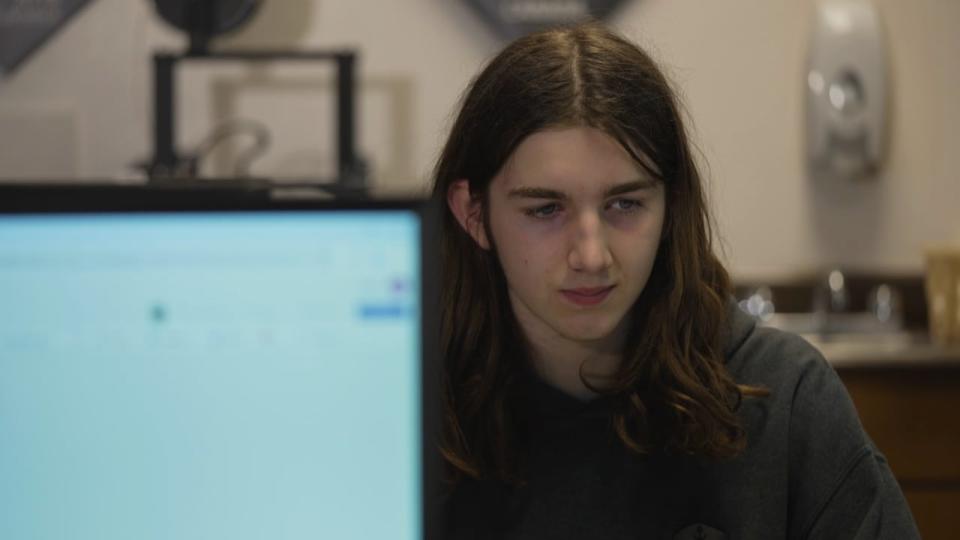
Grade 8 student Caleb Jeffries works away on his computer as he prepares for a national competition that will put his cybersecurity skills to the test. (Michael Heenan/CBC)
Grade 8 student Caleb Jeffries sits at a computer in a dimly-lit classroom. He is staring at lines of code and commands on his laptop — practising for the national competition that will put his cybersecurity skills to the test.
He hopes he and his team will repeat as champions of CyberTitan, a cybersecurity competition for middle and high school students.
WATCH | These middle schoolers could school most adults in cybersecurity:
Around this time last year, he recalls sitting in his school's theatre, nervously awaiting the results.
"When they called our names [for first place], that was really amazing," said Jeffries. "And I knew that all my hard work paid off."
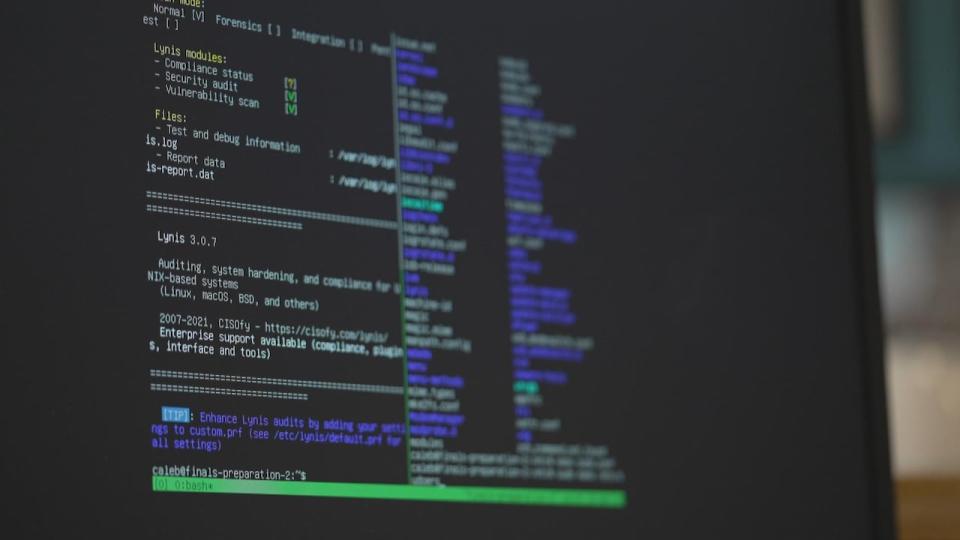
Jeffries's computer features lines of code and commands as he prepares for the big CyberTitan national competition in May. (Michael Heenan/CBC)
Going for gold — again
Fast forward to this year and Jeffries and his team, the CyberDragons, are preparing once again for the national competition after clinching first place in their division at the semi-finals.
Ten high school teams and three middle school teams will make it to the nationals — two of the middle school teams are from Nashwaaksis, the only ones from Atlantic Canada competing.
The competitions involve hours-long scenarios where the students are responsible for identifying and the resolving cyber threats that are thrown at them.
Gary Gautreau, the school's technology teacher and CyberTitan coach, said this is the school's seventh year in competition, with 13 teams in those seven years making the top three to go to nationals. On top of that, he said Nashwaaksis has taken home four first-place national titles.
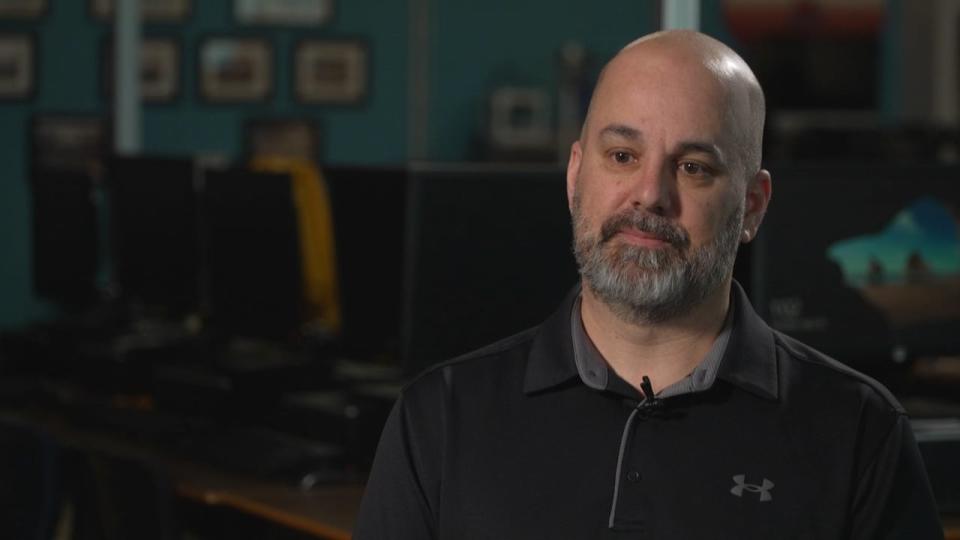
Gary Gautreau, technology teacher and CyberTitan coach at Nashwaaksis Middle School, said the school has taken home four first-place titles at nationals. (Michael Heenan/CBC)
"As a coach and a teacher, I'm very proud of the hard work and the dedication that they put into it," said Gautreau.
"The group that we have right now, they've been here almost every day this year during their lunch hour and four to five days a week after school for an hour and a half — by choice."
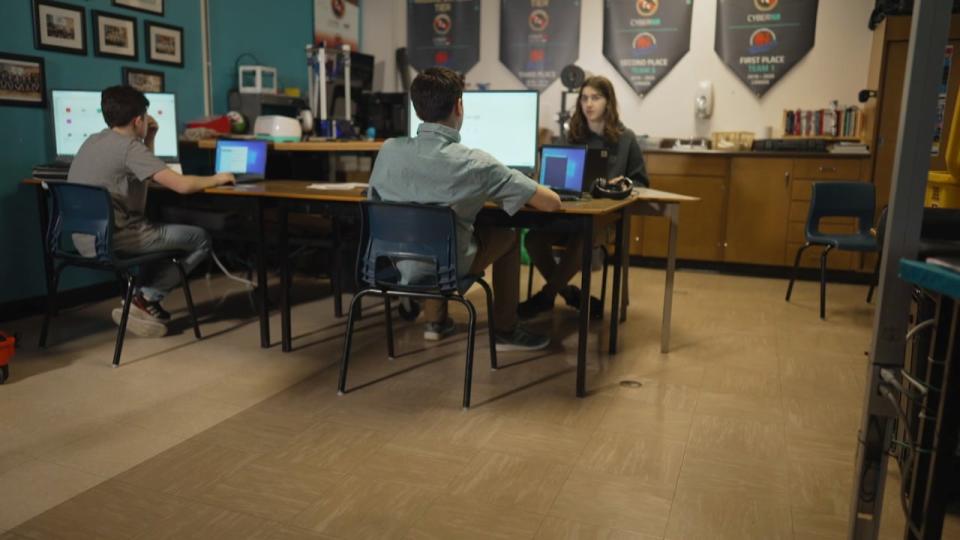
The three-person team called the CyberDragons works out of their technology teacher's classroom. Around them are championship banners from past CyberTitan competitions. (Michael Heenan/CBC)
For Morgan Weatherhead, one of the five Grade 6 students on the Firewall Fighters, this is their first year competing as a CyberTitan and first year going to nationals.
Weatherhead said they have learned a lot about today's technology since joining the club.
"I think it's really cool how it's, like, neverending," they said. "I've learned a lot about how to find vulnerabilities in the computer and how to research them and figure out what to do about them."
Cybersecurity experts in demand
David Shipley, a cybersecurity expert and CEO of New Brunswick-based Beauceron Security Inc., said detecting a threat in software is similar to watching traffic flow.

Cybersecurity expert David Shipley said many people think that cybersecurity experts only consist of engineers or computer scientists, but he said the field needs workers of all sorts. (Submitted by David Shipley)
"Imagine you're kind of looking at the cyber equivalent of a Google Street View," he said. "You're watching things flow back and forth. You're watching activities happen, the regular morning commute, and then you notice something odd.
"And then you start pulling into that and you realize something bad is happening, that things are going down — a cyber bank robbery, for lack of a better word."
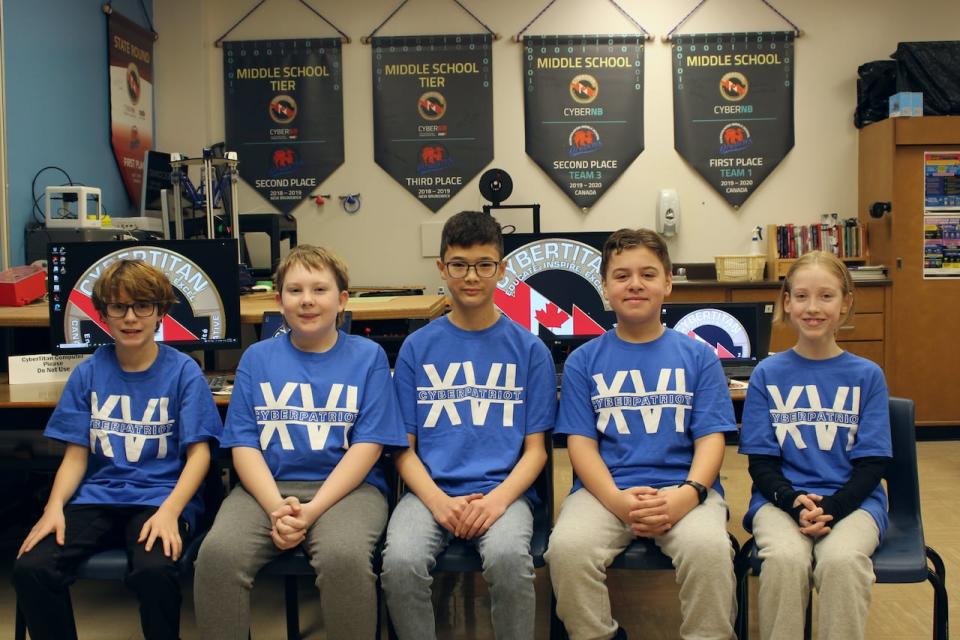
From left, Zach Bangay, Owen Chambers, Simon Jamer, Kyle Dick and Morgan Weatherhead, are all members of the Firewall Fighters, a team of Grade 6 students interested in cybersecurity. (Submitted by Gary Gautreau)
Then comes the response, which can be hard because sometimes things look bad, but it's just a false alarm, he said.
Other times, said Shipley, things are genuinely bad and "those critical few minutes when you are defending an organization might make the difference between a near miss or a terrible multi-day ransomware incident that costs your organization millions."
CyberTitan, where Weatherhead, Jeffries and their teams will compete, thrusts students into their first day on the job as a cybersecurity expert — where things do start to go wrong, said Sheena Bolton, the program manager for CyberTitan and cyber education initiatives at the Information and Communications Technology Council.
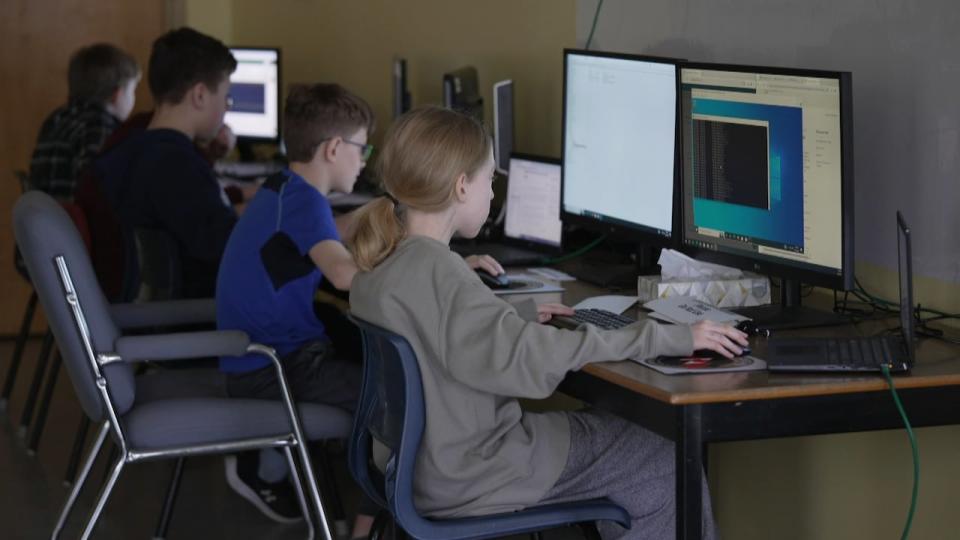
The Firewall Fighters work out of an empty classroom where they spend hours upon hours researching and preparing for the upcoming national competition. (Michael Heenan/CBC)
This year, the students will be tasked with identifying and mitigating threats after a breach at a regional airport, but the rest will be unknown until the Nashwaaksis students start digging.
Bolton said the scenarios are based on real-world instances that happened internationally or nationally, with the hope that if the students continue into the field of cybersecurity, they will already have a leg up.
One year, she said, the kids were placed on a mock cruise ship where credit card information started changing or disappearing and they had to figure it out.
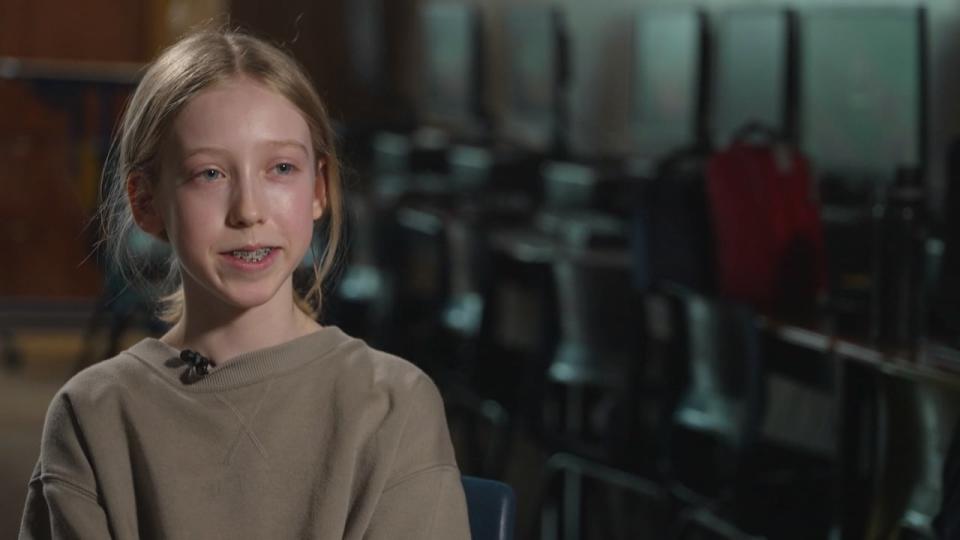
Morgan Weatherhead of the Firewall Fighters will be heading to CyberTitan nationals for the first time this year. (Michael Heenan/CBC)
Bolton said the pandemic increased the need for cybersecurity professionals, and more and more small businesses are looking for protection as they get hacked.
Shipley echoes this sentiment and said that need continues to grow.
"Globally, we are short three-million skilled workers today in cybersecurity and every year the problem gets worse, as our society depends more and more on technology for every aspect of life," said Shipley.
He said many people think that cybersecurity experts only consist of engineers or computer scientists, but he said the field needs workers of all sorts.
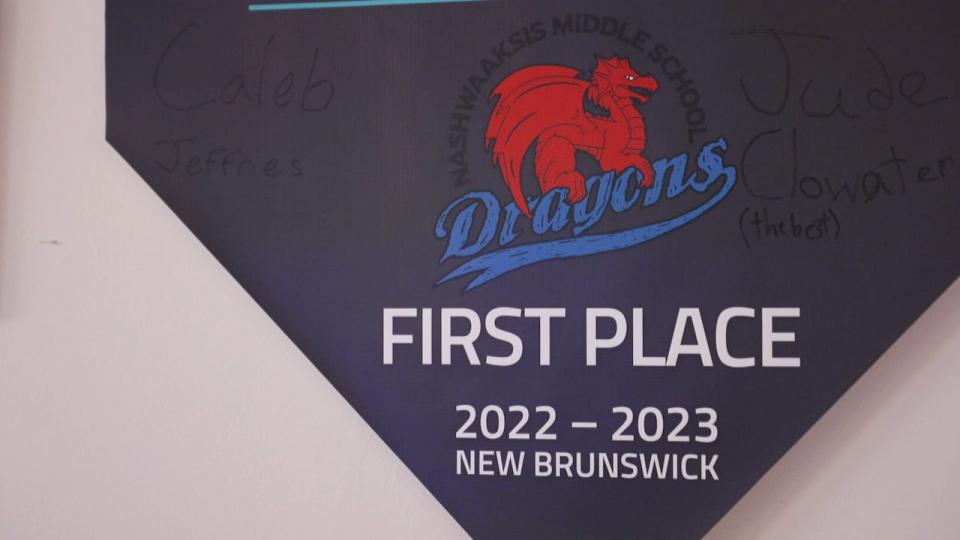
The CyberDragons are returning CyberTitan national champions. Their winning banner hangs in Gautreau's classroom. It's common for team members to sign the banner before it goes up on the wall. (Michael Heenan/CBC)
These jobs include planners and examiners, people working on the detection side of things, people with more technical skills who can respond to the crisis when something bad happens, and then people who try to figure out afterwards what went wrong.
"There's a role in cyber for everybody."
And for Caleb Jeffries, he sees himself continuing with cybersecurity in high school and possibly even beyond.
"There's a lot of jobs needed in that industry, and I think I'd like to pursue that career."
In the meantime, he will be defending his title when he competes at the University of New Brunswick hub at the beginning of May.

